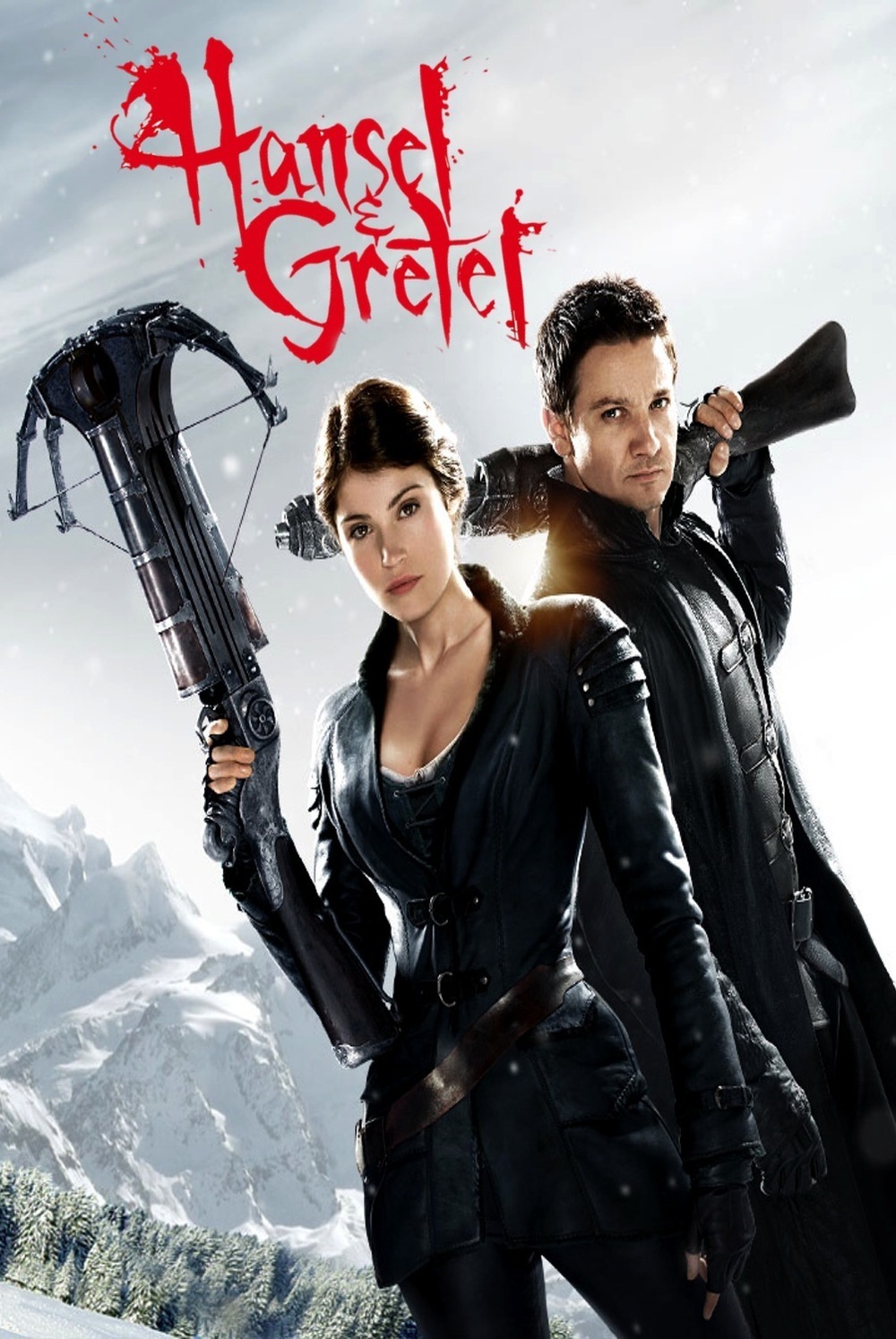You are using an out of date browser. It may not display this or other websites correctly.
You should upgrade or use an alternative browser.
You should upgrade or use an alternative browser.
Depending the year they might not even exist soRobin Hood would be really popular in the UoB. What actors would you guys imagine playing the role in KR?
fuher feline films discusses the rise of Gustav Notler in Germany from the region of Westphalia with an incredible hatred of the French and Belgians for being german enough to be good at war but latin enough to oppose germanyI wonder what films an alternate Kaiser Cat Cinema would make?
Deleted member 82792

The main cast of "The Union", one of the most popular sitcoms in the United Syndicalist States of America. The show centers around day-to-day proceedings of the Scranton Paper Trade Union, where bumbling but well meaning Union representative Michael Scott (Steve Carell) is constantly trying to get by doing as little as possible while avoiding running afoul of the Scranton Workers Committee. Meanwhile, union members Jim (John Krasinki) and Dwight (Rainn Wilson) would battle ceaselessly to win the next union leadership election, while at the same time Jim and Pam's (Jenna Fischer) workplace romance would be teased for the audience throughout the early seasons. Other eccentric yet popular characters included Kevin Jaye Malone (Brian Baumgartner), Stanley James Hudson (Leslie David Baker) and Kelly Kapoor (Mindy Kaling).
The show was extremely popular for its satire of American society, and it ran for 9 seasons, becoming one the wildly watched shows in the Internationale. Surprisingly, it also gained a massive audience from people outside the Syndicalist nations, such as the Reichspakt, the Asia-Pacific Co-Prosperity Sphere and even the Entente. The Ottoman Empire is currently producing a similar sitcom called the Ofis.
Is that a reference to a movie from this timeline, or is it made up for Kaiserreich?
Deleted member 82792
I’m not sure.Is that a reference to a movie from this timeline, or is it made up for Kaiserreich?
Likely it could exist, but wouldn't gain traction in Reichspakt nations due to banned for Syndicalist propaganda. A similar movie could exist elsewhere, though.Would Metropolis still exist in KR, or would Germany ban it for being Syndicalist propaganda?
If China more or less takes Japan's OTL place in the Kaiserreich Timeline, at least in terms of popular media, wouldn't that lead to a fetishization of Jian swords in pop culture, in the same manner as Katanas were?
For those that don't know, Jian are considered the swords of cultivated, civilized people, to be used by Heroes, Generals, Kings, and Princes, unlike the brutish Dao sabers that were used by the common peasant soldiers. Something that is a reoccurring trait in chinese stories.
Some other significant chinese weapons, like the Guan Dao Glaive, or the Fangtian Ji Halberd, popularized by Guan Yu and Lu Bu respectively, might see similar treatment, but it is by far not as pronounced as with the Jian.
Like, we might see some counterpart to Weaboos that claim "The glorious Jian is folded three-hundred times and made from meteoric steel! They can easily pierce Tank Armor!", similar to how Katanas are treated in certain circles.
Though, the fact that China has a much larger variety in weapons compared to Japan in stories and wielded by popular figures, and doesn't ascribe so much cultural value or status symbolism to one in particular, might lessen that effect somewhat.
Thoughts?
For those that don't know, Jian are considered the swords of cultivated, civilized people, to be used by Heroes, Generals, Kings, and Princes, unlike the brutish Dao sabers that were used by the common peasant soldiers. Something that is a reoccurring trait in chinese stories.
Some other significant chinese weapons, like the Guan Dao Glaive, or the Fangtian Ji Halberd, popularized by Guan Yu and Lu Bu respectively, might see similar treatment, but it is by far not as pronounced as with the Jian.
Like, we might see some counterpart to Weaboos that claim "The glorious Jian is folded three-hundred times and made from meteoric steel! They can easily pierce Tank Armor!", similar to how Katanas are treated in certain circles.
Though, the fact that China has a much larger variety in weapons compared to Japan in stories and wielded by popular figures, and doesn't ascribe so much cultural value or status symbolism to one in particular, might lessen that effect somewhat.
Thoughts?
Deleted member 82792
Sounds interesting. Would Chinese animation take the place of anime?If China more or less takes Japan's OTL place in the Kaiserreich Timeline, at least in terms of popular media, wouldn't that lead to a fetishization of Jian swords in pop culture, in the same manner as Katanas were?
For those that don't know, Jian are considered the swords of cultivated, civilized people, to be used by Heroes, Generals, Kings, and Princes, unlike the brutish Dao sabers that were used by the common peasant soldiers. Something that is a reoccurring trait in chinese stories.
Some other significant chinese weapons, like the Guan Dao Glaive, or the Fangtian Ji Halberd, popularized by Guan Yu and Lu Bu respectively, might see similar treatment, but it is by far not as pronounced as with the Jian.
Like, we might see some counterpart to Weaboos that claim "The glorious Jian is folded three-hundred times and made from meteoric steel! They can easily pierce Tank Armor!", similar to how Katanas are treated in certain circles.
Though, the fact that China has a much larger variety in weapons compared to Japan in stories and wielded by popular figures, and doesn't ascribe so much cultural value or status symbolism to one in particular, might lessen that effect somewhat.
Thoughts?
Manga, and by extension Anime, came into being when the American Occupation Force, after WW2, brought comics along, a format the Japanese later adopted for their own folk stories and legends.Sounds interesting. Would Chinese animation take the place of anime?
If you have some way of bringing comics to China, the same might happen, especially since you can't toss a stone into the air in that country without it hitting some semi-mythological figure.
I mean, think about it: Romance of the Three Kingdoms, the Journey to the West, the Water Margin, they all have memorable characters and themes that lend themselves pretty well to the pages of a Comic Book.
And, similar to Manga in our own history, these eastern books might even have stories that take themselves seriously, rather than being cheap dime comics of early Marvel and DC, as chinese writers and artists would probably want to do their source material justice.
Though the overall character might be different, since Chinese and Japanese have quite different mindsets, afaik.
chankljp
Donor
Just off the top of my head: After an Internationale WK2 victory in which they no longer see a need to promote anti-German sentiments within their populations, maybe either the CoF or UoB can produce a movie about the Christmas Truce during WK1/the Great War, as a means of changing their peoples' views on Germans now that they have been 'liberated' from the monarchist yoke?Can anyone think of any Christmas movies made in the KR universe? We've already gone over the idea of a German version of Die Hard...
Maybe the plot will have an emphasis on how the rank-and-file soldiers who came from working class proletariat backgrounds across both sides of the trenches have much more in common with each other, compared to their own aristocratic and bourgeoisie officers?
Share:



